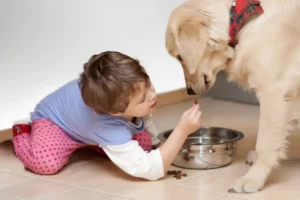Part of the Divorce Series
Series About:
My husband and I separated, then divorced, almost 2 and a half years ago. Our son is now 4 years old, and he’s asking questions about why his Mommy and Daddy don’t live together anymore. His Dad and I both explained that we love him very much, that we still care about each other, but we just don’t live together. My son visits his Dad every other weekend and talks to him regularly on the phone. But lately I’ve noticed that he’s becoming angry about being separated from me for a few days. And now he’s showing more aggressive behavior at the preschool. We don’t want this to become a bigger issue — what do you suggest we do?
—Stacy
It’s not unusual for children whose parents have recently divorced to have adjustment problems. Many kids experience anxiety or depression, and some even engage in aggressive or destructive behavior. If you think about it from your son’s perspective, his world has been turned upside down. His sense of safety and security was severely compromised at a very early age, and now you are observing how your divorce has impacted him emotionally.
You may not want to hear this, but the research on the long-term effects of divorce on children isn’t very pretty. A significant percentage of kids from divorced homes struggle with depression, academic difficulties, drug and alcohol abuse, and other problems. Many of them have difficulty establishing or maintaining intimate relationships.
I’ll be straight with you, Stacy: The best way to help your son is to reconcile with your husband. You said you’ve been divorced for two years…the fact is that most couples who split up these days are involved in what we therapists refer to as “low conflict” divorces. In other words, their relationship didn’t end because of abuse or unfaithfulness — these couples simply say that they “grew apart” or “fell out of love.”
I don’t know if that’s your story, but if it is, I would challenge you and your husband to consider what is best for your son. How much effort did you put into working through your problems? You obviously were in love once…is it possible that the two of you could put any pride or resentment aside and seriously commit to six months of counseling with an experienced marital therapist? Only you know the answer to that question.
If reconciliation is impossible or one of you has re-married, then you’re going to need to do everything in your power to help your son adjust. He will need an extra measure of your love, your reassurance, and especially your time. You’ll need to help him learn to express his feelings of anger and sadness in appropriate ways. My colleague Dr. Archibald Hart has written an excellent book that will help you guide your son through the healing process. It’s titled Helping Children Survive Divorce. You can order this book online in our Resource Center or by calling our ministry’s toll free number 1/800/A-FAMILY (1/800/232-6459).
Thanks for writing, Stacy. I pray that you will seek God’s leading in the decisions that lie ahead.















